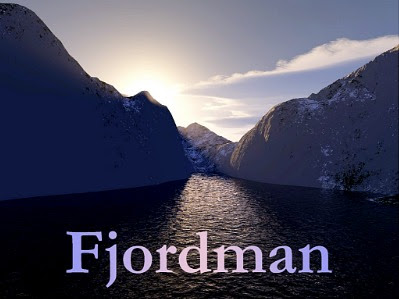
Fjordman’s latest essay, “The Uniqueness of Western Civilization” (a book review), has been published at FrontPage Mag. Some excerpts are below:
The Uniqueness of Western Civilization by Professor Ricardo Duchesne is a refreshing and original book that breaks with the current Multicultural consensus to argue that Western civilization is indeed unique and has been so for a very long time, probably far longer than most people realize.
It is a daring text. Few other books have tried to cover such a vast canvass of thousands of years of history, and many of those who have attempted to do so were less successful than this one. In fact, it’s so full of information about many different societies, cultures and epochs that it’s rather challenging to do it justice in a few words.
This is a serious historical volume, filled with information on every page. It clearly wasn’t written as a “history for dummies,” but refers to a wide variety of important historical works dealing with the Industrial Revolution, Tang Dynasty China, ancient Egypt and Bronze Age Europe. I have read quite a few of the books mentioned here myself, but by no means all of them. I doubt whether most professional historians have read all of the works cited here.
The Uniqueness of Western Civilization is packed with footnotes, to the extent that on certain pages these take up more space than the main text. This is both the book’s greatest strength as well as potentially one of its flaws. It is a dense, scholarly work which clearly was the result of many years of careful research. On the other hand, it’s not always light reading. I liked it personally, but I have an academic background and read extensively from all forms of history books. It is not absolutely necessary to have read many of the books mentioned in it in order to appreciate Professor Duchesne’s fine work, but this would undoubtedly constitute an advantage.
If I were to criticize anything of the contents, it might be that the references to Hegel and his ideas take up slightly too much space in certain sections. Overall, however, this is a very well-researched volume that largely succeeds in what it set out to do: To establish that what we call Western civilization — or more accurately, European civilization — is different from other civilizations, and has been for a very long time.
Ricardo Duchesne demolishes the arguments of historians such as Kenneth Pomeranz, Bin Wong, John Hobson, Jack Goldstone and others who suggest that China was on the same level as Europe at the dawn of the Industrial Revolution, and that it was more or less accidental that the IR started in Britain and Western Europe. In fact, European civilization exhibited unique characteristics not just during the Scientific Revolution, the Age of Exploration or the Christian Middle Ages, but perhaps even before the Roman Empire and Classical Greece.
The Iliad and the Odyssey, traditionally attributed to the shadowy figure of Homer, may have achieved their present form after 800 BC; some scholars say after 700 BC. Yet they also partially reflect events and cultural patterns that are centuries older, perhaps dating back to the Greek Dark Ages or even all the way back to the Mycenaean Greeks of the second millennium BC, the oldest literate European culture, whose texts we can now read (the Minoan script remains undeciphered). This was long before Socrates, Plato or Aristotle walked the streets of ancient Athens, when Rome was still a swamp.
Read the rest at FrontPage Mag.

For a complete archive of Fjordman’s writings, see the multi-index listing in the Fjordman Files.

“..a refreshing and original book that breaks with the current Multicultural consensus to argue that Western civilization is indeed unique and has been so for a very long time, probably far longer than most people realize.” Blasphemy! Definitely for my library.
I’m also rather sceptical in regard to the “inevitably” of industrialisation–any student of the Industrial Revolution in Britain would understand the enormous complexity of the problem of discovering the underlying causes and preconditions necessary for industrialisation. The simple historical fact is that Britain was the first “modern” nation.
For whatever reasons, the phenomenon occurred first in the UK and then in NW Europe, not in India or China, of course, the failure of Asian societies to modernise, is not their fault. I remember an Indian claiming that they just about to industrialise, when the British colonised the sub continent and ruined everything, the burden of proof is with the Indians as we have only one model of autonomous industrialisation.
The Persians and North Indian cultures have Indo-European origins and they were both notoriously despotic, perhaps making that left turn south of the Black Sea made the difference.
Even my Guardian-reading brother said that the Marxist concept that all cultures (is that coded speak for races) are equally valid is nonsense. A physicist, he said that the only thing that Indians had invented was zero, although admittedly that has come in rather useful. Britain probably industrialised first because it had known two hundred years of peace, something which our continental neighbours with potential enemies just across the border did not have the luxury of. It is for this reason that England removed the walls from its towns and cities before this happened on the Continent where things were not quite so safe.
It’s doubtful that peace is a necessary condition for autonomous industrialisation, it’s definitely not a sufficient condition, other societies experienced periods of internal peace as well, without inventing industrial society. Germany industrialised rapidly in the 19th century, and surpassed the UK, despite continual wars with its neighbours.
The Maya also invented zero.